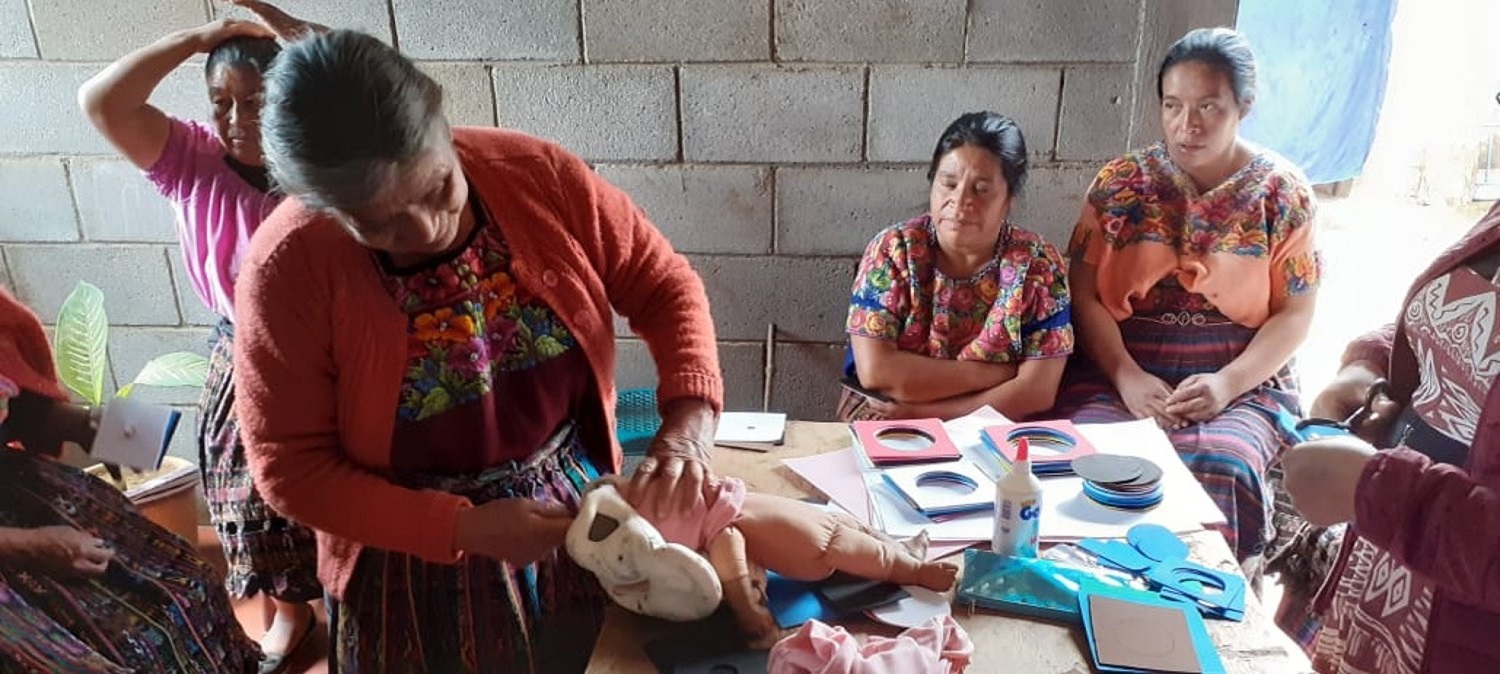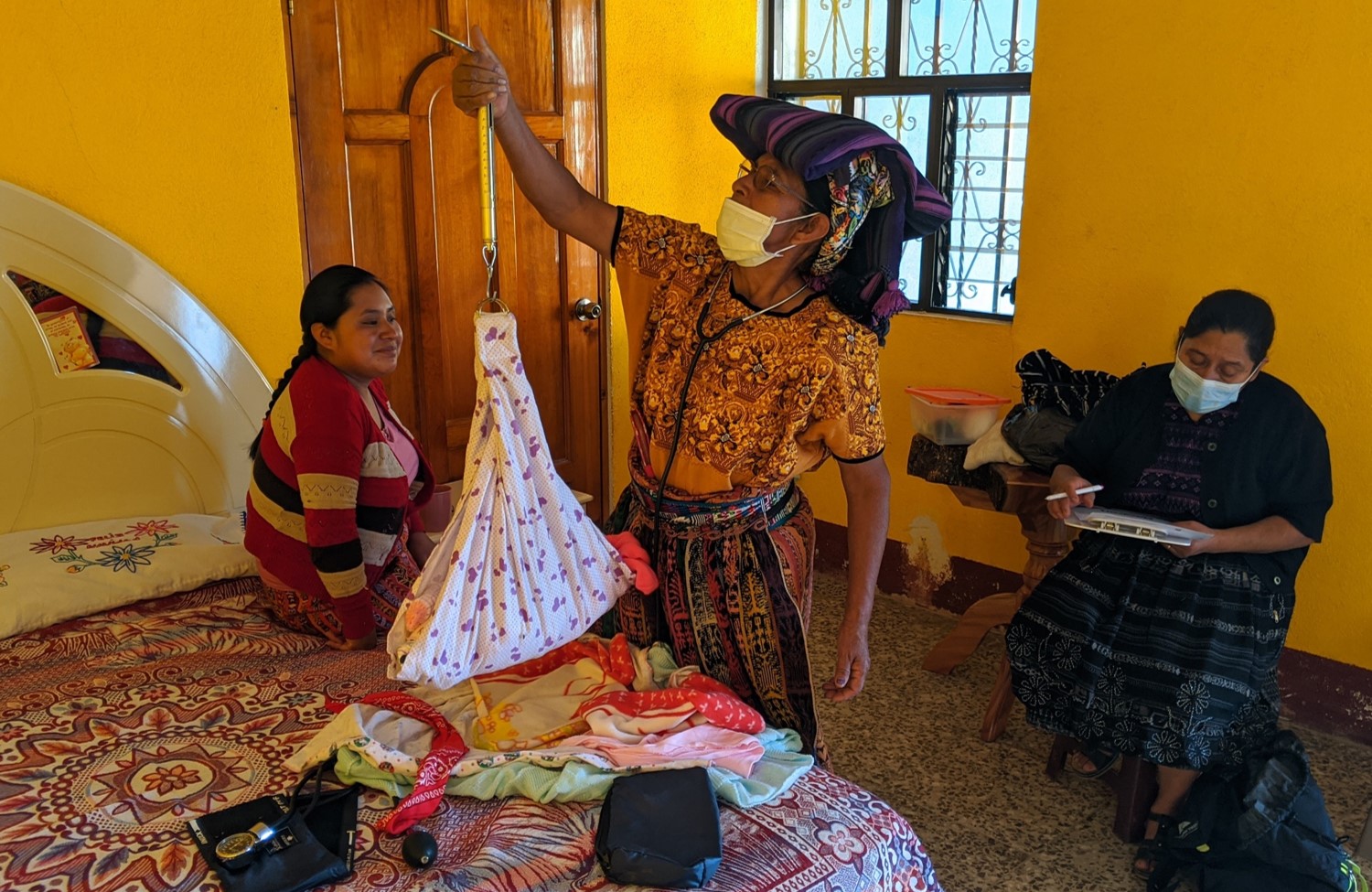
Mission
The mission of Maya Midwifery International is to improve maternal child health outcomes by helping to prepare and sustain local midwives in their communities and helping them to have a voice in local and national policies that affect them.
Life Challenges of the Women Served
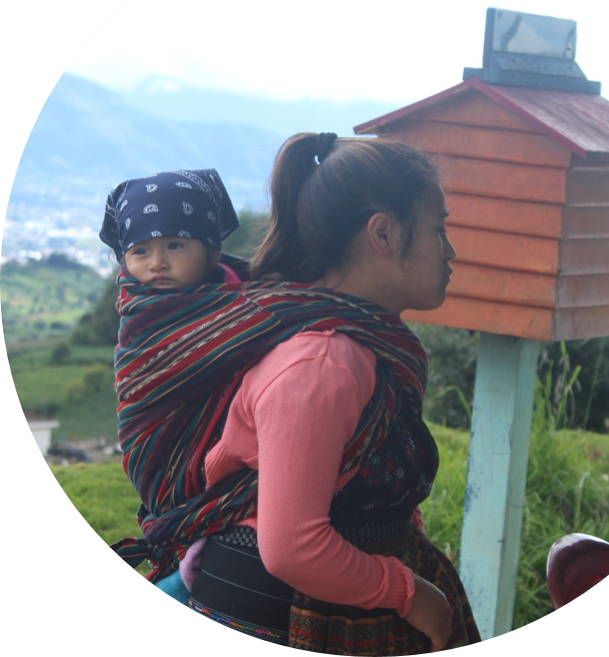 Maternal and infant mortality rates in Guatemala are the worst in Latin America and among the highest in the Western Hemisphere. These rates increase sharply among rural, indigenous women who have significantly less access to quality health care. There are also high rates of adolescent pregnancy, chronic malnutrition, problems with child and spousal abuse, and mistreatment of indigenous individuals in the health system, especially women. Guatemala’s health system has the lowest budget in Latin America, which has resulted in a collapse of public services. Since almost half the population lives in poverty, there is also a barrier to private health services.
Maternal and infant mortality rates in Guatemala are the worst in Latin America and among the highest in the Western Hemisphere. These rates increase sharply among rural, indigenous women who have significantly less access to quality health care. There are also high rates of adolescent pregnancy, chronic malnutrition, problems with child and spousal abuse, and mistreatment of indigenous individuals in the health system, especially women. Guatemala’s health system has the lowest budget in Latin America, which has resulted in a collapse of public services. Since almost half the population lives in poverty, there is also a barrier to private health services.
Inequality disproportionately affects Maya indigenous populations, 39 percent of whom live in extreme poverty. Indigenous women are more likely to suffer from chronic malnutrition, have limited access to skilled reproductive, maternal, and newborn health (RMNH) services and are more likely to speak only their Maya dialect. Indigenous women across Guatemala are also more likely to be illiterate and be most disadvantaged in terms of formal education access.
The number of healthcare providers in Guatemala is a major challenge. In 2014, Guatemala had only 7.5 physicians and 6 professional nurses per 10,000 people. Many of those licensed health professionals speak only Spanish and are concentrated in urban areas, leaving rural populations with limited access to essential health services, including RMNH services.
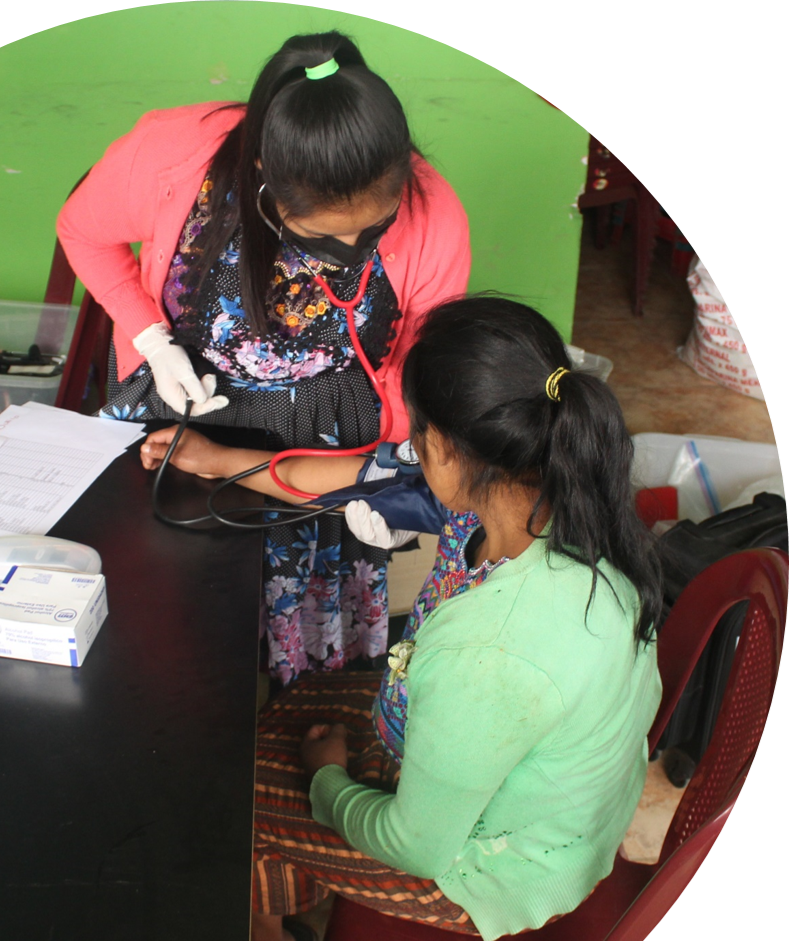 While there has been notable progress in reducing maternal and newborn mortality in the country, much work remains to reduce the maternal mortality ratio (MMR) to fewer than 70 per 100,000 live births and newborn mortality to less than 12 per 1,000 live births in all countries by 2030 – particularly in rural indigenous communities. Guatemala continues to see slow progress in reducing MMR, with a decrease from 219 deaths in 1989 to an estimated 95 deaths in 2017. Communities with large indigenous populations are disproportionately affected by maternal deaths. The leading causes of Guatemalan maternal death mirrors what is seen globally: postpartum hemorrhage, hypertensive disorders of pregnancy, sepsis, and complications from abortion.
While there has been notable progress in reducing maternal and newborn mortality in the country, much work remains to reduce the maternal mortality ratio (MMR) to fewer than 70 per 100,000 live births and newborn mortality to less than 12 per 1,000 live births in all countries by 2030 – particularly in rural indigenous communities. Guatemala continues to see slow progress in reducing MMR, with a decrease from 219 deaths in 1989 to an estimated 95 deaths in 2017. Communities with large indigenous populations are disproportionately affected by maternal deaths. The leading causes of Guatemalan maternal death mirrors what is seen globally: postpartum hemorrhage, hypertensive disorders of pregnancy, sepsis, and complications from abortion.
With the COVID-19 pandemic, new barriers disproportionately impacted rural, indigenous communities. Health disparities are being exacerbated as a result of weakened health systems and reduced access to routine, essential services. As a result, it is expected that there will be significant increases in maternal and under-five child deaths in low and middle income countries during the duration of the pandemic and beyond.
The Project
The Association of Midwives of the Mam Speaking Area (ACAM) Mobile Clinics Program reduces maternal and infant mortality and morbidity. This is achieved through the provision of quality evidence-based reproductive, maternal, and newborn health (RMNH) services, continuing education and learning opportunities for community midwives and other local health workers, and improved referral systems. This aligns with RISE’s mission of global gender equality by improving maternal and infant health outcomes.
This program takes place in Concepción Chiquirichapa and four surrounding, hard-to-reach rural communities: Las Barrancas, Las Victorias, Tuilcanabaj, and La Nueva. The ACAM birth center is the only one in Concepción Chiquirichapa, and the only health facility owned and operated by indigenous midwives in Guatemala. Approximately 50,000 people live in the communities served by ACAM, about 80 percent of whom are indigenous Maya. ACAM midwives provide skilled midwifery services in the Mam language for their target communities, both at their birth center and through mobile clinics. Global studies confirm that trained and supported midwives have the ability to deliver 87 percent of the essential care needed by women and newborns.
Anticipated project outcomes include improved access to quality RMNH care, reduced maternal and infant mortality and morbidity, and strengthening the local foundation and focus on the health and well-being of women, their families, and communities. To achieve this, the Mobile Clinics Program will include:
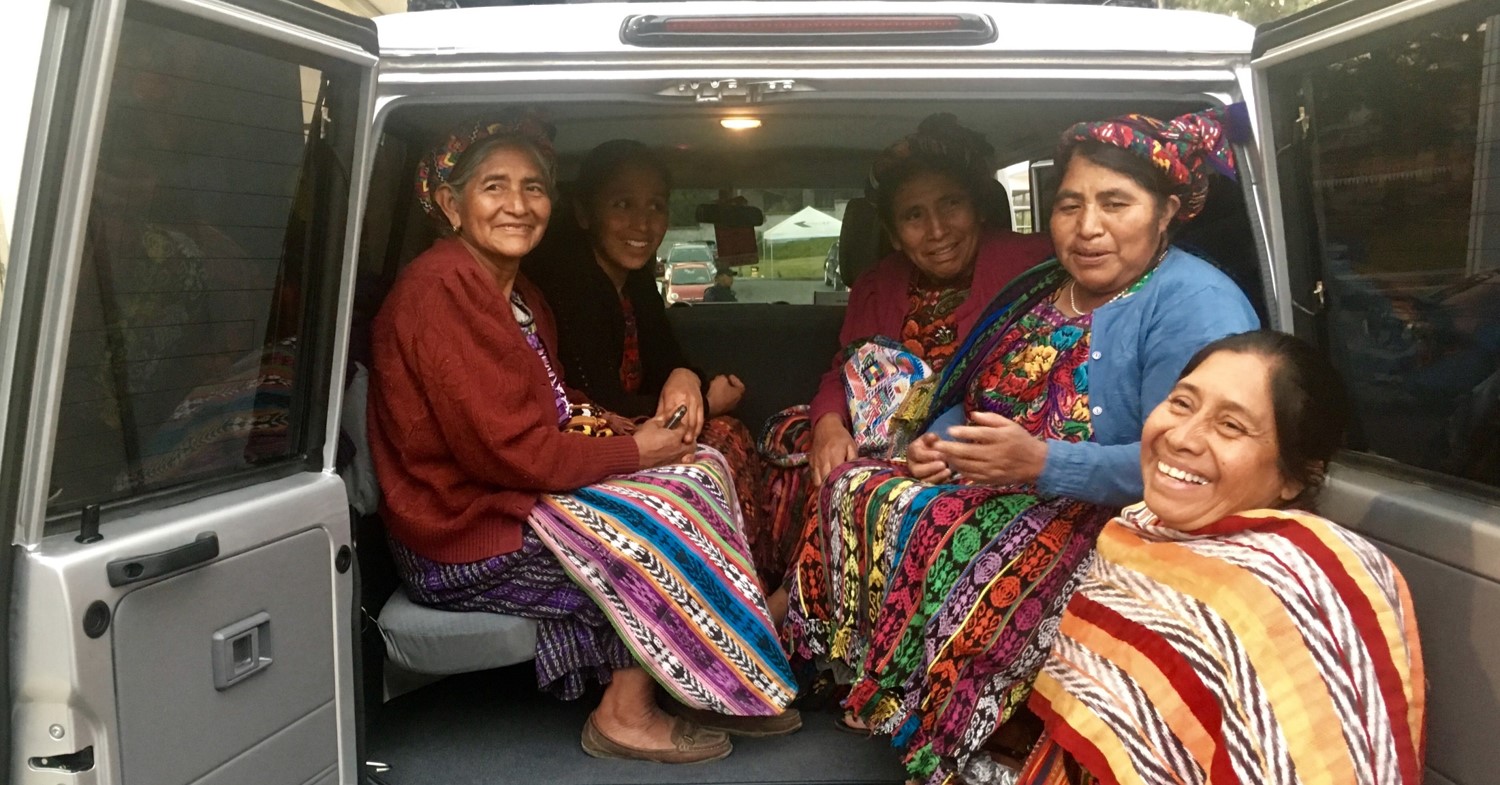
- Deployment of mobile clinics: The mobile clinics will provide essential RMNH services on a monthly basis in each key community, reaching an average of 100 clients per month in the four communities. The mobile clinics provide a safe space and range of RMNH services for women, adolescents and girls. These women gain access to trained midwives who share a common language and culture. They receive prenatal and postpartum care, general birth education and support, and general women’s health services such as family planning, well-woman care, and preventive care such as breast and cervical cancer screenings. Such essential care can help identify a potentially life-threatening warning sign during the prenatal or postpartum period and facilitate timely access to appropriate care, including referral to a higher level.
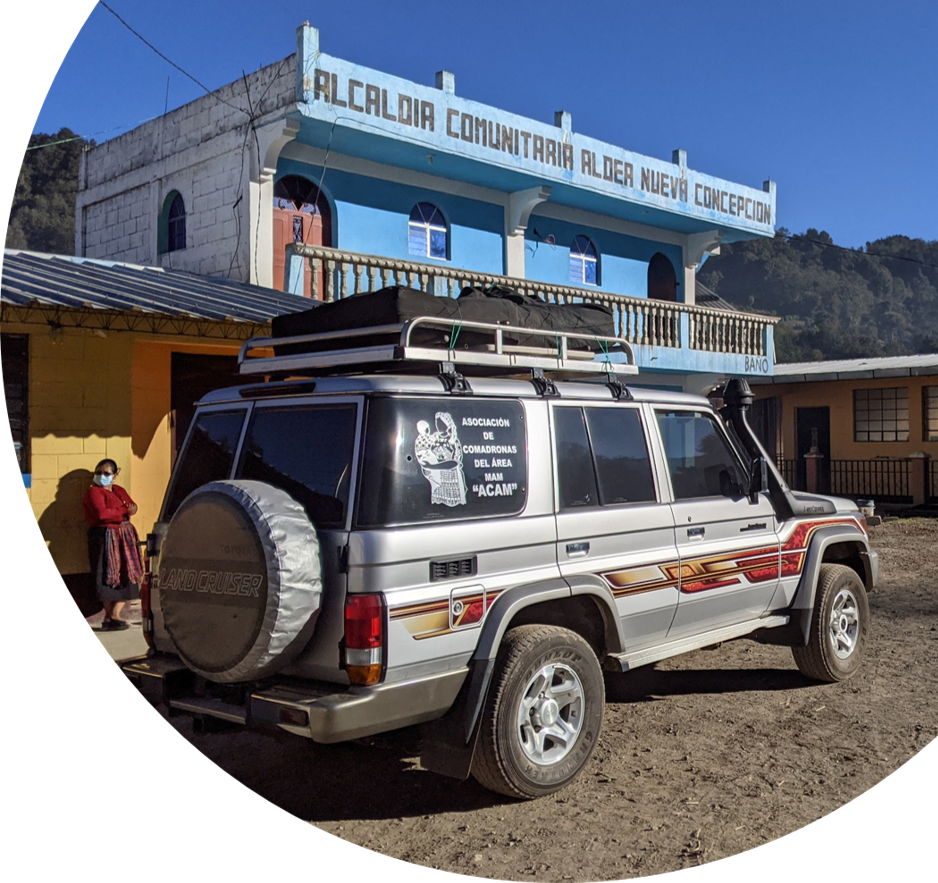 Research shows that mobile clinics have been successful in increasing utilization of key services, lowering costs, increasing the likelihood of robust prenatal care, and contributing to a lower rate of preterm and low birth weight infants. This project saves lives and creates a sustainable foundation for healthier and more stable families and communities.
Research shows that mobile clinics have been successful in increasing utilization of key services, lowering costs, increasing the likelihood of robust prenatal care, and contributing to a lower rate of preterm and low birth weight infants. This project saves lives and creates a sustainable foundation for healthier and more stable families and communities.
While the ACAM birth center provides high quality, culturally appropriate RMNH care with excellent outcomes, many women in the surrounding rural communities cannot access the birth center easily due to transportation costs, impassable roads, and work and family demands. Without ACAM’s mobile clinics, many women and infants in these rural communities do not have consistent access to a health care provider.
With support from donors and Maya Midwifery International, ACAM has conducted mobile clinics in four rural surrounding communities since 2017. The team visits each community monthly to provide prenatal and postpartum care, family planning, and other basic primary care. In 2019, 991 patients were seen during mobile clinic visits. Due to the COVID pandemic, the mobile clinics were not possible in 2020, but they resumed in February 2021 with much excitement from the ACAM midwives, community midwives, and community members. - Mobile trainings to community midwives and other healthcare workers: Enhanced and continuing education will allow community midwives to deepen their clinical knowledge and skills. Areas of focus will include recognition, management and referral for pregnancy/labor/birth/postpartum complications, well-women care, family planning, and screening/referral for domestic and sexual abuse.
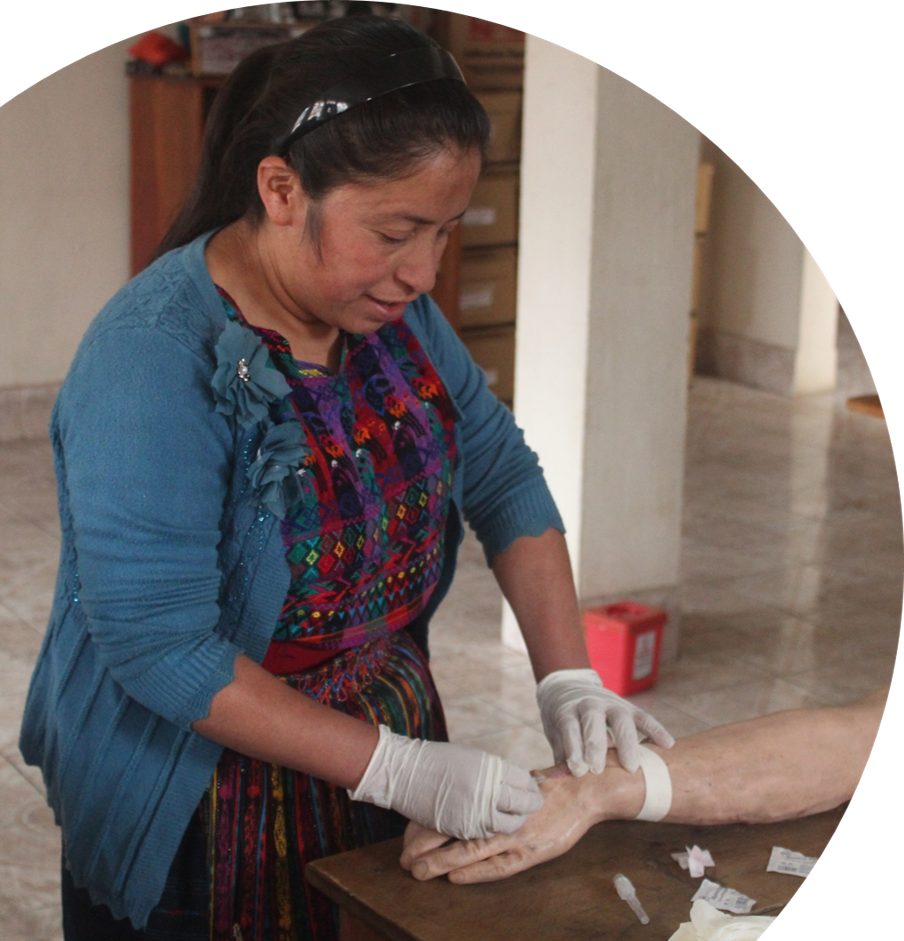 The ACAM midwives are from the communities that they serve, and they are deeply respected as leaders and representatives. Decisions related to the ACAM center and its services and programs – including the mobile clinics – are made under the leadership of the ACAM Council, who are selected through an open and transparent process by the larger cooperative of ACAM midwives. The ACAM Council and the full cooperative of 40 ACAM midwives make decisions that are informed by a deep knowledge and engagement in the communities that they serve.
The ACAM midwives are from the communities that they serve, and they are deeply respected as leaders and representatives. Decisions related to the ACAM center and its services and programs – including the mobile clinics – are made under the leadership of the ACAM Council, who are selected through an open and transparent process by the larger cooperative of ACAM midwives. The ACAM Council and the full cooperative of 40 ACAM midwives make decisions that are informed by a deep knowledge and engagement in the communities that they serve.
The midwife training and mentorship program leverages the advanced skills of the ACAM team, international practitioners, the birth center’s physician, and more advanced midwives to support clinical skill enhancement (such as ultrasound and suturing skills). The program balances respecting traditional practices with providing current evidence-based midwifery care. The ACAM midwives provide ongoing support and clinical skill building for “community midwives,” who practice in the rural areas where ACAM operates the mobile clinics. The ACAM midwives also collaborate with the local radio station to provide periodic Mam-language radio programs that aim to share important health and nutrition information with the local communities.Since 2018, the ACAM midwives have been meeting with community midwives in the remote mobile clinic communities, called “community days,” to help them improve their clinical knowledge and skills, and ensure they have access to key additional equipment and supplies such as safe birth kits. Prior to the pandemic, the local health center run by the Guatemalan Ministry of Health delegated the monthly capacity-building for community midwives to the ACAM team. The ACAM team now facilitates monthly training sessions (in Mam) for 71 community midwives in the ACAM catchment area. During the pandemic, these meetings were not possible, but they resumed in February 2021.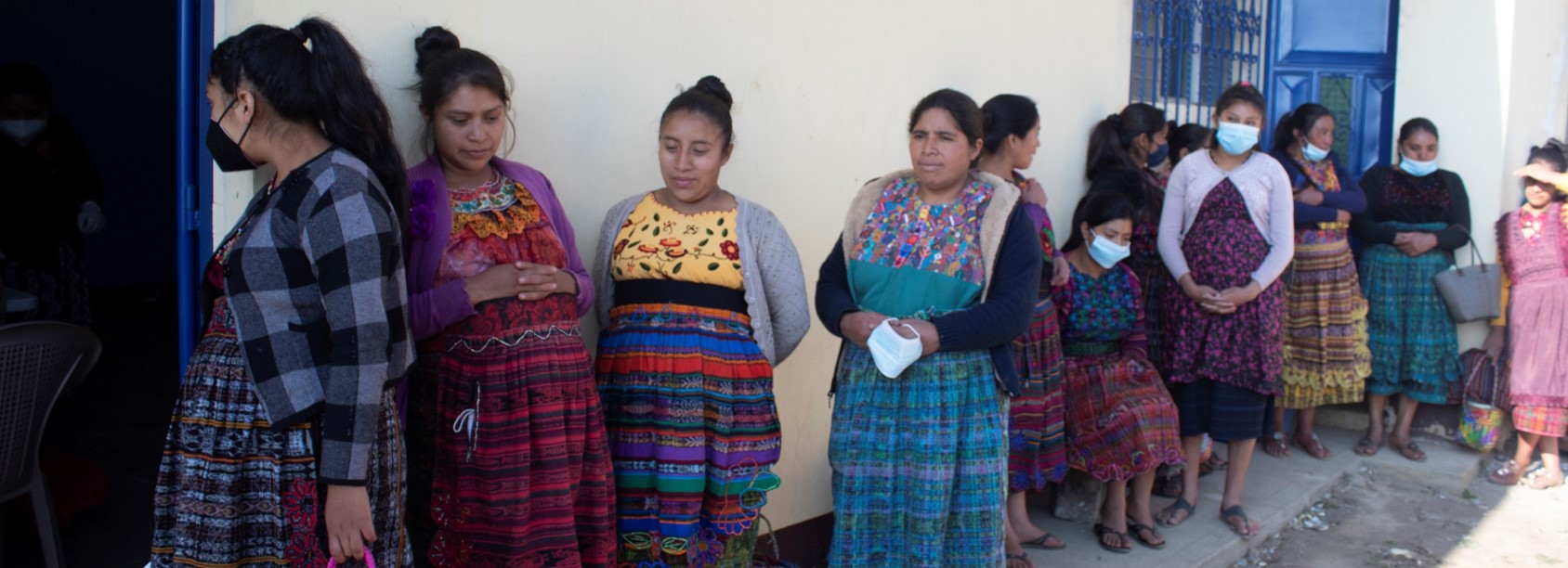
- Improved referral and transportation linkages between communities and higher-level facilities (including the ACAM birth center and the hospital in Quetzaltenango) for complicated pregnancies, deliveries, and newborn care, and emergencies: The ACAM midwives and ACAM staff physician will collaborate with community midwives, community leaders, birth center staff, and local health posts to strengthen the referral process and support development of a local community-based plan for referral and transportation. This enhances birth preparedness and complication readiness at the community level. The ACAM team often facilitates referrals to the local hospital or other facilities and organizations. This includes higher level labor and delivery support for high-risk pregnancies, advanced malnutrition needs, or other needs – such as linking a baby born with a cleft palate to an organization that could provide the necessary surgeries and medical treatments.
By increasing the number of patients receiving care at the mobile clinics by 30 percent, 1,040 women and girls in the community will be directly impacted by this project. Another 71 midwives will also receive direct benefit for a total of 1,111 women and girls. The average family in Guatemala has 5.9 members, approximately 3.03 of which are female. Therefore, the project will indirectly impact 6,554 people, approximately 3,366 of which are women and girls.
ACAM services are provided at a nominal fee and waived for clients who cannot afford to pay. Any patient seeking care that is provided at the mobile clinics is eligible for participation. ACAM is already a trusted local community resource and female clients self-refer, knowing that they will receive quality care that is respectful, culturally appropriate and in Mam. ACAM also collaborates with community midwives to help them to identify pregnant women and girls in the communities, who are then accompanied by their community midwife to the mobile clinics for further care.
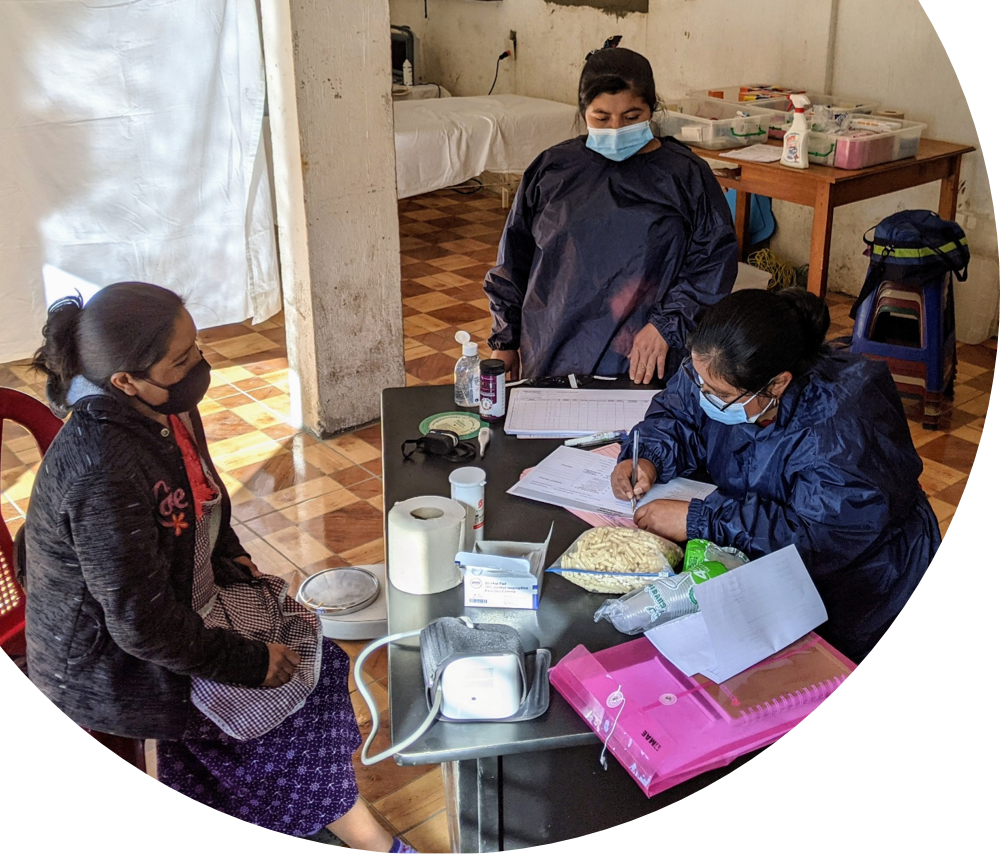 ACAM works in coordination with numerous partners, including the indigenous leaders who grant permission for the project, provide a location in their community meeting building, and encourage their communities to seek care at the clinics. ACAM also works with independent Maya midwives and private and government-run healthcare facilities. The ACAM midwives are officers in the fledgling National Movement of Grandmother Midwives Nim Alaxik. This group meets four times a year to develop and implement strategies for preserving and promoting indigenous midwifery at the local and national level. ACAM also collaborates with Occidente de Guatemala Radio Extra FM 99.7 to broadcast a monthly health program in Mam. In 2021, they collaborated with Population Media Center, a Vermont-based international NGO with deep experience in the use of media as a vehicle for effective behavior change with a focus on women’s health and the environment. ACAM also has a nutrition collaboration with Maya Health Alliance, a well-established local NGO that focuses on a range of nutrition and health initiatives in the region and supports nutrition programming at ACAM.
ACAM works in coordination with numerous partners, including the indigenous leaders who grant permission for the project, provide a location in their community meeting building, and encourage their communities to seek care at the clinics. ACAM also works with independent Maya midwives and private and government-run healthcare facilities. The ACAM midwives are officers in the fledgling National Movement of Grandmother Midwives Nim Alaxik. This group meets four times a year to develop and implement strategies for preserving and promoting indigenous midwifery at the local and national level. ACAM also collaborates with Occidente de Guatemala Radio Extra FM 99.7 to broadcast a monthly health program in Mam. In 2021, they collaborated with Population Media Center, a Vermont-based international NGO with deep experience in the use of media as a vehicle for effective behavior change with a focus on women’s health and the environment. ACAM also has a nutrition collaboration with Maya Health Alliance, a well-established local NGO that focuses on a range of nutrition and health initiatives in the region and supports nutrition programming at ACAM.
Given that the mobile clinics are already being deployed to these communities, MMI staff and the ACAM midwives have been collecting data on the patients who receive services and tracking outcomes. This data will serve as the baseline for comparison to measure the increase in patient numbers and key outcomes.
The long-term goal of the mobile clinics is to expand into other communities which will allow for more revenue generation from increased patient attendance. Eventually, ACAM aspires to partner with Guatemala’s Ministry of Health by demonstrating the positive impact to the community and health outcomes which will encourage their assistance with fiscal and sustainable support.
Direct Impact: 1,111; Indirect Impact: 3,366
UN Sustainable Development Goals
![]()
![]()
![]()
![]()
![]()
![]()
![]()
Questions for Discussion
- What do you think it would be like to give birth surrounded by healthcare workers who don’t speak your language?
- How do you think this project impact overall healthcare in Guatemala?
- How do you think this project enhances gender equality?
How the Grant Will be Used
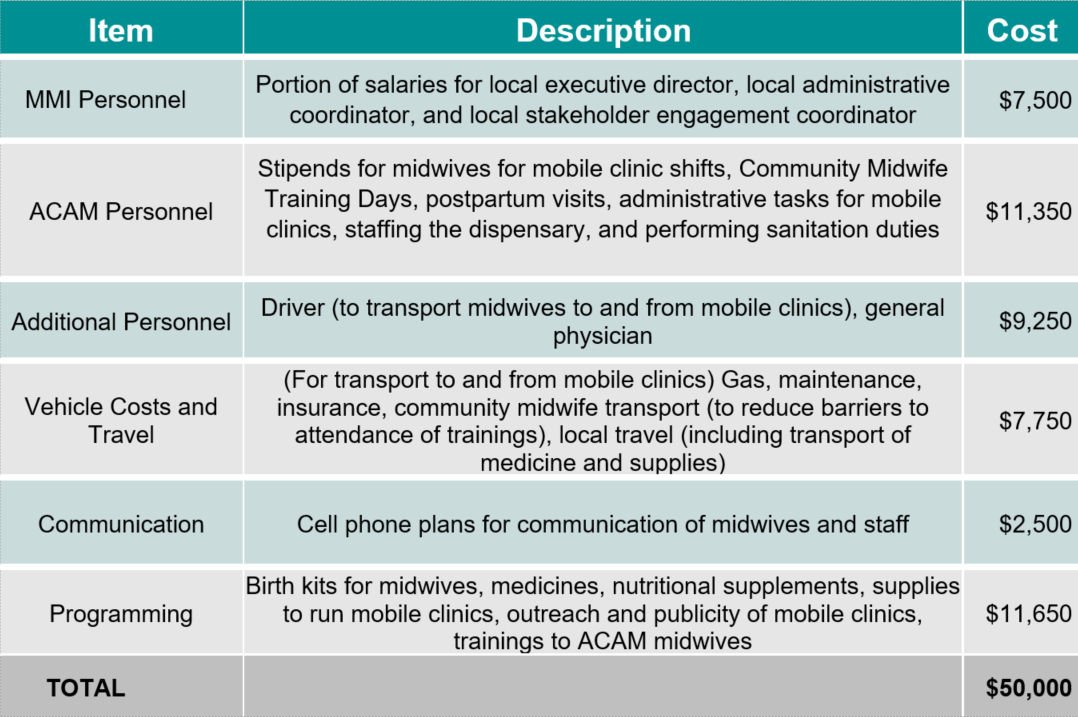
Why We Love This Project/Organization
Maya Midwifery International is very successful because the program listens to local midwives and community members to address issues beyond training and service delivery. This has allowed the organization to tackle challenges in a way that holistically considers economic and community empowerment, cultural respect and support, and educational attainment along with health care delivery. This project provides vital, lifesaving mobile clinics to address reproductive health care screening and referral for domestic and sexual abuse in remote communities. Indigenous midwives are highly trained, speak the local Maya Mam language, and are highly respected. The critical services they provide in areas where government sponsored health care systems are weak have been very successful in producing impressive health outcomes.
Evidence of Success
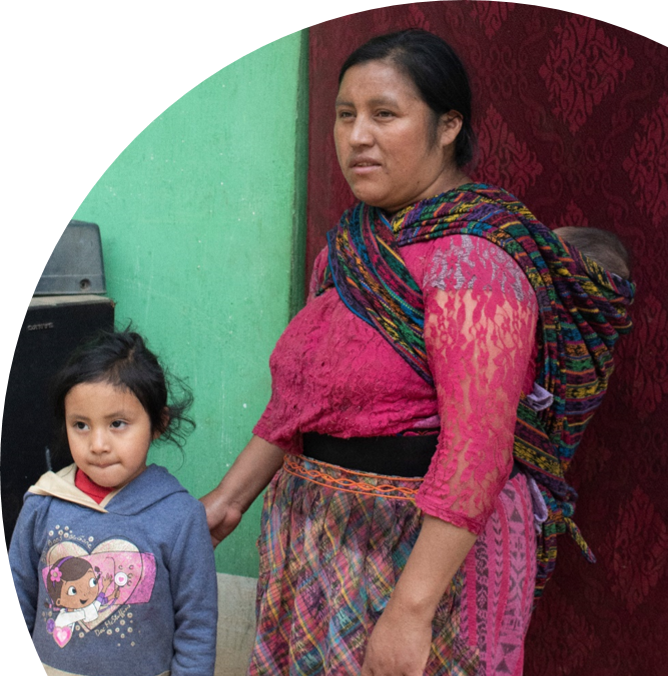 The ACAM midwives received a national award from the Guatemalan government in 2014 for their work on Women’s Rights and access to health care. Antonina Sanchez, first President of ACAM, was elected to represent the Department of Quetzaltenango on the Presidential Committee on the Rights of Women.
The ACAM midwives received a national award from the Guatemalan government in 2014 for their work on Women’s Rights and access to health care. Antonina Sanchez, first President of ACAM, was elected to represent the Department of Quetzaltenango on the Presidential Committee on the Rights of Women.
ACAM midwives provide much of the client care in their birth center in Concepción Chiquirichapa. This includes a range of reproductive, maternal, and newborn health care services at the birth center and through regular mobile clinics in four surrounding rural and hard-to-reach communities. Core services include prenatal and postpartum care, attending low-risk births, provision of family planning services, cervical cancer screening and treatment, basic obstetrical ultrasound, well-woman care, and basic nutrition support. ACAM identifies high-risk births through its prenatal care services and refers those clients to the hospital in Quetzaltenango as needed. Thirteen of the ACAM midwives are full-time employees of ACAM. This team provides 24-hour coverage of the birth center and daytime clinic staffing for services provided through the birth center and mobile clinics. The ACAM midwives speak the language of their clients (Mam) and understand their cultural practices and rich heritage. This ensures high-quality, culturally appropriate care. The ACAM birth center is the only medical facility in Guatemala owned and operated by indigenous midwives.
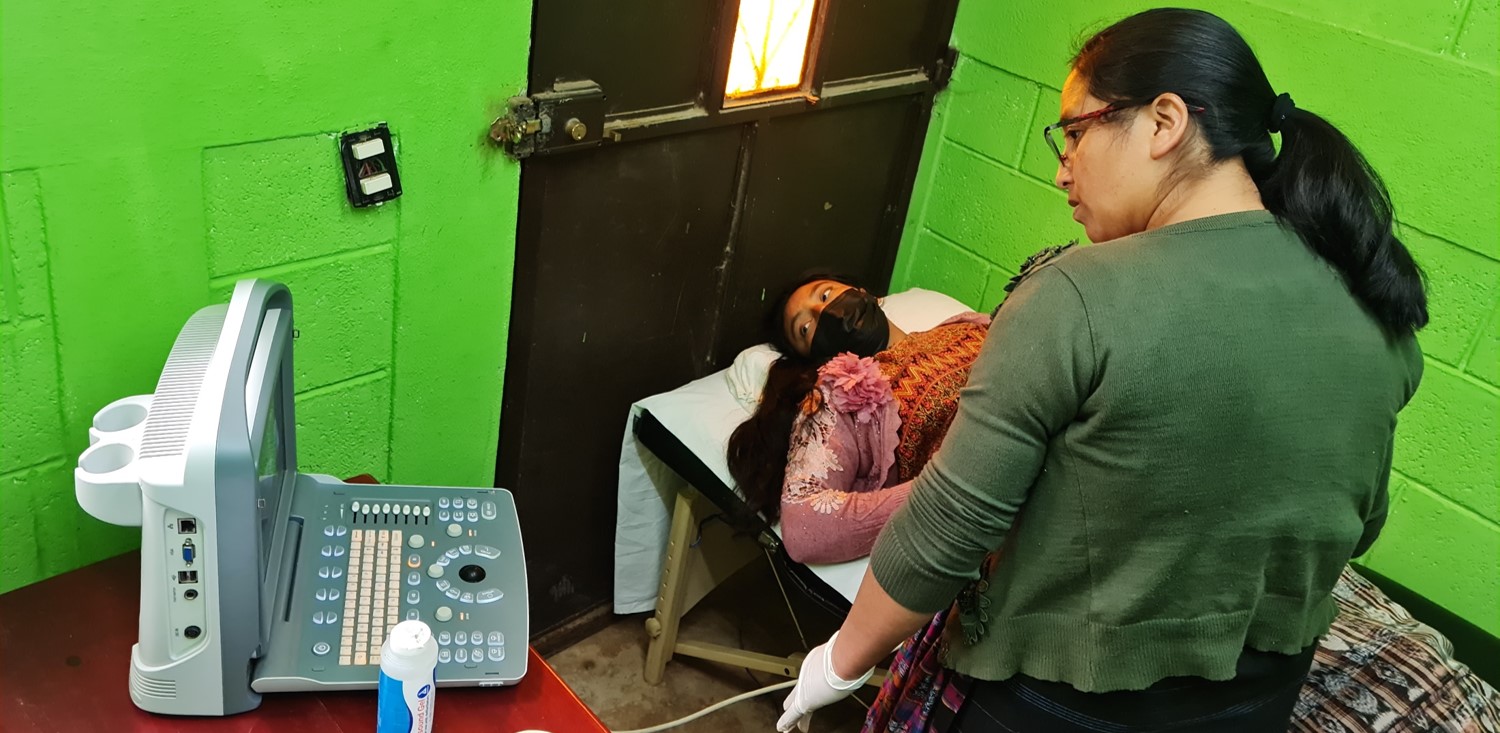
During the COVID pandemic, the midwives pivoted rapidly to respond to increasing patient numbers and to implement COVID infection prevention and control strategies. Access to protective COVID vaccination for the clinical team and the lifting of government restrictions, has enabled ACAM to resume its full breadth of clinical care activities. During the height of the COVID pandemic, new clients seeking services for labor and birth at the ACAM birth center doubled. Prior to the pandemic, the birth center attended an average of 18 to 20 births each month. That average was closer to 40 births each month during the height of the pandemic. In 2020 and 2021, the birth center averaged 30 to 38 births per month, and this trend has continued into 2022. Often these families are new to ACAM’s care and despite outreach efforts, women commonly arrive at the birth center for the very first time in labor. Families continue to seek skilled ACAM midwifery services during labor, birth, and the early postpartum period rather than delivering at home or in a government facility. Consults have also increased exponentially (more than 45 percent), from 3,800 for prenatal/postnatal care or family planning in 2017-2018 to more than 5,500 from January 2021-May 2022.
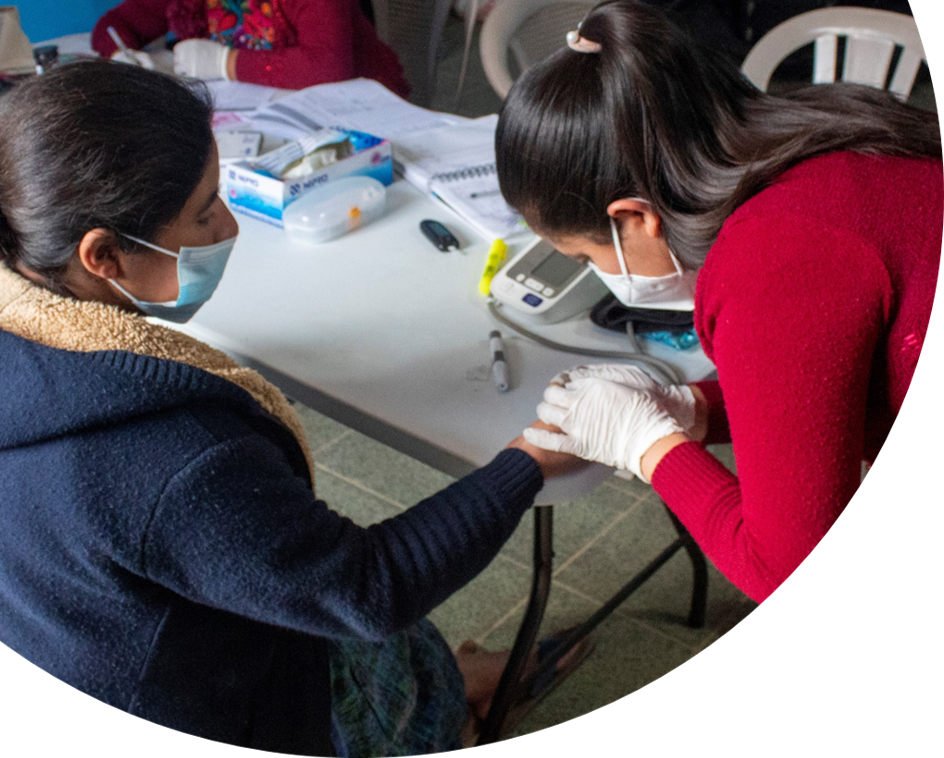 MMI and ACAM have partnered to successfully train and mentor the ACAM midwives to strengthen their clinical skills and evidence-based midwifery care, while preserving local traditions. For example, MMI developed a certification for ultrasound competency based on rigorous U.S. standards, the first of its kind for Guatemalan traditional midwives. Through hundreds of hours of clinical ultrasound practice supervised by midwife mentors, a written test, and having had dozens of sonography images individually reviewed and validated by the MMI Board member and US-based Radiologist, five midwives and the general physician have been certified to perform basic obstetric ultrasound. Two more are near certification and three have started basic training. Six midwives have successfully completed certification in IV insertion, and three midwives are certified in suturing. In addition to clinical skills, four midwives have been trained in computer literacy skills including Excel, Word, and Gmail to facilitate improved record and data documentation.
MMI and ACAM have partnered to successfully train and mentor the ACAM midwives to strengthen their clinical skills and evidence-based midwifery care, while preserving local traditions. For example, MMI developed a certification for ultrasound competency based on rigorous U.S. standards, the first of its kind for Guatemalan traditional midwives. Through hundreds of hours of clinical ultrasound practice supervised by midwife mentors, a written test, and having had dozens of sonography images individually reviewed and validated by the MMI Board member and US-based Radiologist, five midwives and the general physician have been certified to perform basic obstetric ultrasound. Two more are near certification and three have started basic training. Six midwives have successfully completed certification in IV insertion, and three midwives are certified in suturing. In addition to clinical skills, four midwives have been trained in computer literacy skills including Excel, Word, and Gmail to facilitate improved record and data documentation.
In Guatemala, midwives have been practicing and supporting women, families, and communities for thousands of years. In Maya communities, midwives are highly respected health care providers and integral members of the community. They provide quality, evidence-based care that is respectful of local culture and traditions and in the language of those they serve (Mam). The ACAM birth center is a highly trusted health care setting for women, their families and independent community midwives. The ACAM midwives serve as a key resource for a robust network of rural, community midwives who refer complex clients to the ACAM birth center team to ensure that women receive the best possible care. This collaboration ensures that women with more complex pregnancies are swiftly identified and referred for higher level care. This includes threatened preterm labor, gestational disorders of pregnancy, hypertension and others.
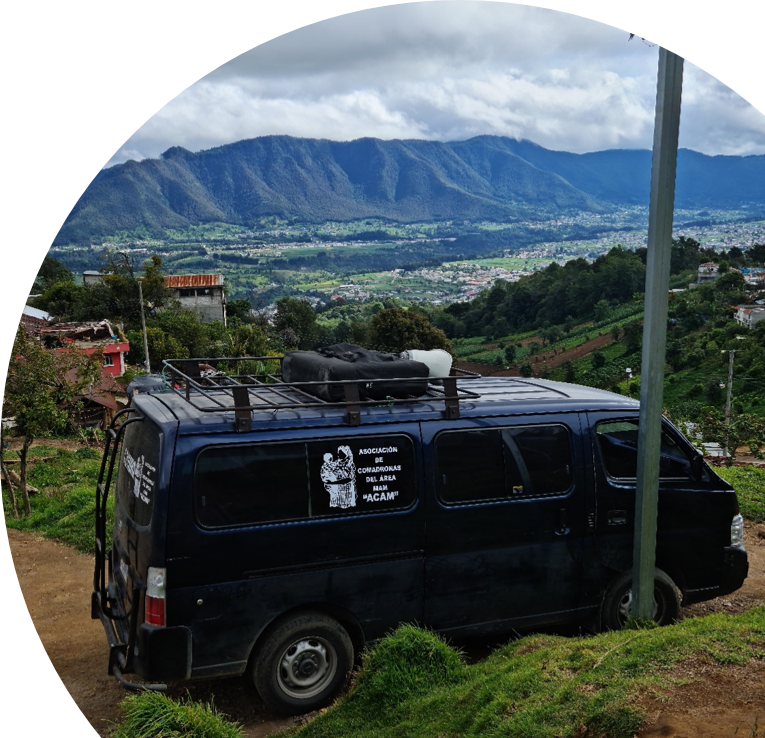 Global and regional trends indicate that cesarean section, a life-saving surgical intervention, is not being utilized appropriately. In some settings, it is over-utilized and in others, access is limited. A major accomplishment of the ACAM team has been to prevent repeat cesarean sections by identifying and supporting women with a prior history of cesarean birth, with successful vaginal birth after cesarean (VBAC). In 2021, ACAM midwives attended 25 VBAC (vaginal birth after cesarean) clients without complication, a 100% success rate. Given the well documented risks and costs of cesarean birth, this is a particularly noteworthy clinical accomplishment. Birth center care for these clients ensures proximity and access to higher level care in the event of need for urgent transfer during the labor, birth or postpartum. As a health care provider that is respected by both the indigenous Mam community and the formal health care system, ACAM serves as a critical bridge between these communities.
Global and regional trends indicate that cesarean section, a life-saving surgical intervention, is not being utilized appropriately. In some settings, it is over-utilized and in others, access is limited. A major accomplishment of the ACAM team has been to prevent repeat cesarean sections by identifying and supporting women with a prior history of cesarean birth, with successful vaginal birth after cesarean (VBAC). In 2021, ACAM midwives attended 25 VBAC (vaginal birth after cesarean) clients without complication, a 100% success rate. Given the well documented risks and costs of cesarean birth, this is a particularly noteworthy clinical accomplishment. Birth center care for these clients ensures proximity and access to higher level care in the event of need for urgent transfer during the labor, birth or postpartum. As a health care provider that is respected by both the indigenous Mam community and the formal health care system, ACAM serves as a critical bridge between these communities.
Voices of the Girls
“The mobile clinics that we have carried out in the communities have had a great impact on women, because in these visits we have been able to identify women at risk, saving their lives. They have also had the benefit of obtaining folic acid, incaparinas (nutritional supplements), and prenatal vitamins. We have used ultrasound to be able to identify ectopic, molar, twin, anembryonic pregnancies, and other types of complications that we have seen in other women. We identify the risks and give support to future mothers, since in several Health Centers they do not have basic necessities for women. ACAM has benefited many women by arriving to their communities with the mobile clinics, and we have been able to detect women with high blood pressure close to having a stroke. For ACAM midwives, it is an honor to support low-income women. An ultrasound in private clinics costs 300 quetzales (about $38 US) which is impossible for them, but in ACAM’s mobile clinics, it is free. This has been a resounding success.
Likewise, the midwives of ACAM have given support to women in terms of counseling so that they can attend to their needs during pregnancy. In several cases, we have heard of women who suffer domestic, sexual, and psychological violence from their partners or husbands. They do not let them go to the health centers. As such, the mobile clinics have become an escape for these women so that they know how their health and pregnancy are.”
– Emelda, ACAM Midwife, Board Treasurer, and Administrative Support
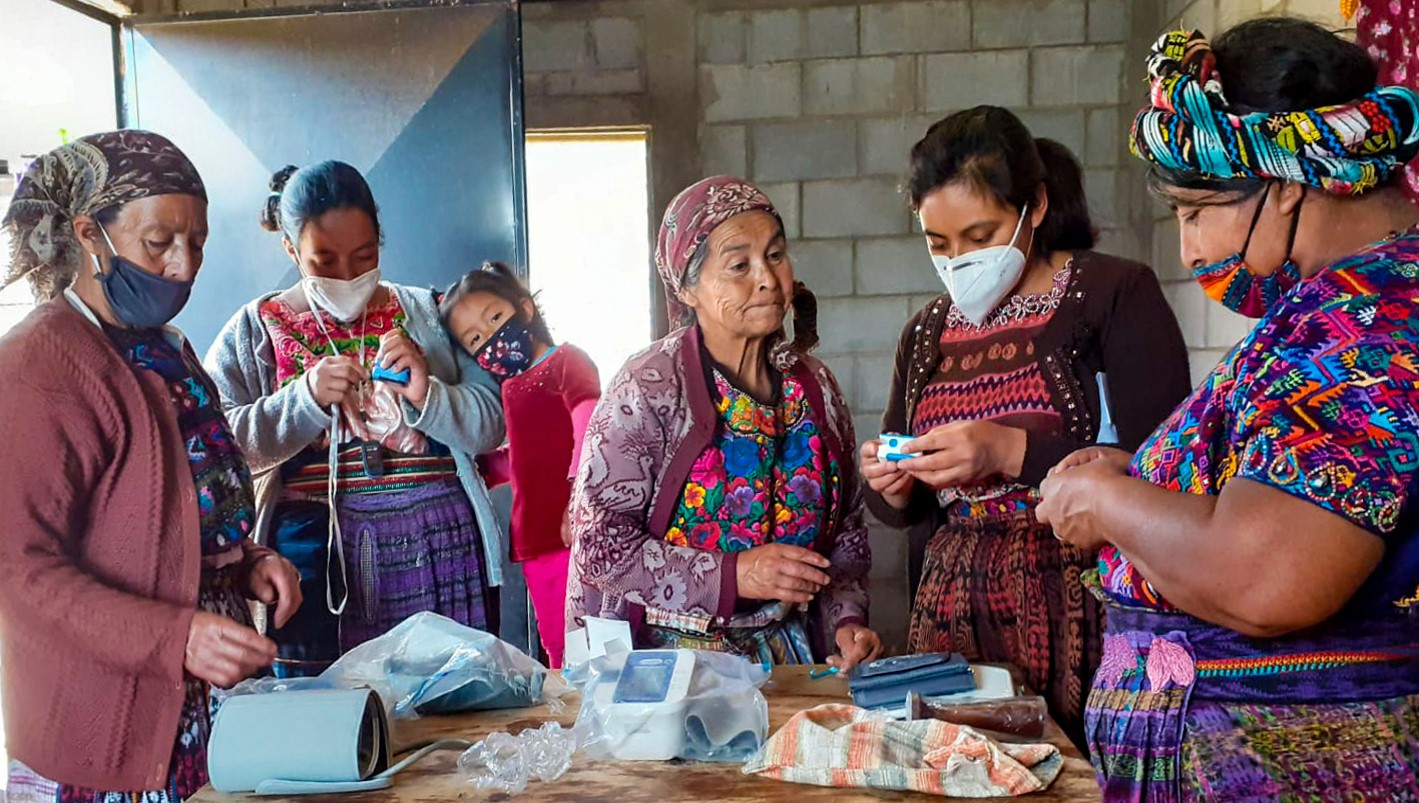
“The mobile clinics are a joy for the midwives because we reach the poor communities. The long distances, the roads, the rain, the landslides, and the lack of money mean that several of the women benefit directly from the days of the mobile clinics directly in their communities.
Given this, in the community known as Las Barrancas, the ACAM midwives pick up the pregnant women with the ACAM van and take them to the mobile clinic location. We take their pulse, monitor for risk, and, most importantly, perform ultrasounds to know how the pregnancy is doing.
After 5 or 6 years of coming to Las Barrancas, we have detected that in this community there is a lack of food. Due to the distance and the difficulty of reaching the area, pick-ups with vegetables rarely arrive. There is limited fresh beef or pork, and normally the diets are not very good in this region, so we have taught the women how to use the different plants to keep healthy.
Other women in this village have already had two or three children with us in the mobile clinics. ACAM midwives have supported several women to have their births in the healthiest way. In addition to this, ACAM always gives them prenatal vitamins, incaparina, and other supplements so that they can take care of their health.”
– Azucena, ACAM Founder, Midwife, Board President
About the Organization
Since 1999, Maya Midwifery International (MMI) (formerly International Mayan League USA (IMLUSA) has served as an advisory and fundraising body for ACAM (Association of Midwives of the Mam Speaking Area) – a group of 40 Maya midwives who work together to address issues specific to indigenous midwives and the communities they serve. MMI’s model is based on listening to local midwives and community members and addressing issues that go beyond training and service delivery to tackle challenges in a way that holistically considers economic and community empowerment, cultural respect and support, and educational attainment, together with addressing health issues.
Where They Work
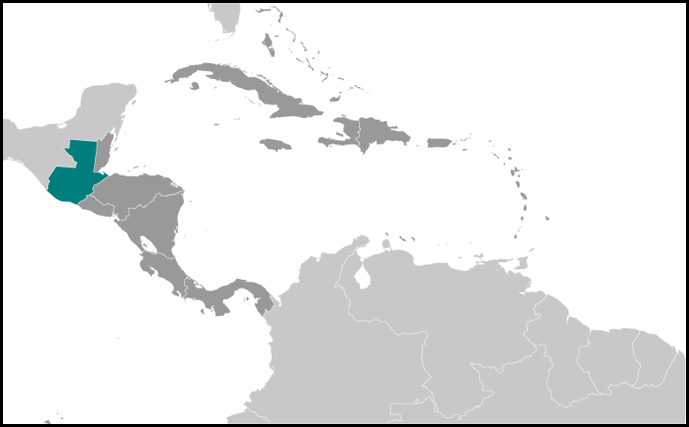
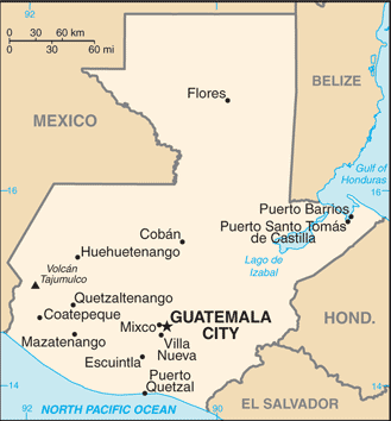
Guatemala is in Central America, bordering the North Pacific Ocean between El Salvador and Mexico, as well as the Gulf of Honduras (Caribbean Sea) between Honduras and Belize. It is hot and humid in the lowlands and cooler in the highlands. A third of its exports are sent to the US. These include sugar cane, bananas, palm oil, melons, potatoes, plantains, pineapple, and rubber.
It is one of the poorest countries in Latin America with health indicators among the worst in the hemisphere. It is also the most populous country in Central America, with the highest fertility rate and population growth in Latin America. This is likely to continue because of its large reproductive-age population and high birth rate. Almost half of Guatemala’s population is under age 19, making it the youngest population in Latin America. The fertility rate has slowly declined during the last few decades due in part to limited government-funded health programs. However, the birth rate is still close to three children per woman and is markedly higher among its rural and indigenous populations.
Guatemala is a poor country that struggles in several areas of health and development, including infant, child, and maternal mortality, malnutrition, literacy, and contraceptive awareness and use. The country’s large indigenous population is disproportionately affected. There are 23 distinct indigenous Maya groups within the population of 16 million. Concepción Chiquirichapa is in the Quetzaltenango area of southwest Guatemala.
A closer look at the impact of midwives around the world
Midwives provide critical care for women and their newborns, including sexual and reproductive care, delivery, and post-partum/post-natal care. Among other services, they provide family planning counseling, perform breast and cervical cancer screenings, and are present during labor and the birthing process. Midwives also help advance women’s and girls’ rights, which is an important step in the fight for gender equality.
During humanitarian crises, midwives also help distribute the critical Minimum Initial Services Packages for reproductive health care. These packages help prevent disease and disability related to pregnancy, obstetric complications, and sexual and other forms of gender-based violence. Considering that more than 500 women die in pregnancy or childbirth every day during these crisis situations, these packages can mean the difference between life and death.
According to the United Nations Population Fund, there is a shortage of midwives around the world. These predominantly female workers can meet up to 90 percent of the need for sexual, reproductive, maternal, newborn and adolescent health needs. Of the 1.1 million healthcare providers who can provide this type of care, 900,000 are midwives. The shortage is most severe in low income countries. Due to gender biases, these workers are often underpaid and lack status and support. Today, 73 countries comprise 96 percent of the world’s maternal deaths, but only 42 percent of the world’s midwives, nurses and doctors.
Source Materials
